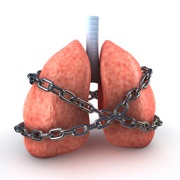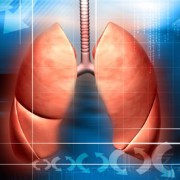If you have been diagnosed with tuberculosis, you may wish to discuss the following five questions with your physician:
1. My report says Lung TB – positive. What exactly does this mean?
A positive report of tuberculosis means that your lungs have been infected by the bacteria Mycobacterium tuberculosis and the infection is in the active state. The report specifies that your lungs are the affected part of your body. Tuberculosis can also occur in the kidneys, brain, spine, the lymphatic system, the genitor-urinary system, etc.
2. Besides the bad cough and weight loss that I have been experiencing, what other symptoms should I be watching out for?
That depends on the type, primary affected organ, and stage of your tuberculosis condition. However, common symptoms that could present themselves are:
• Fatigue
• Low grade fever
• Blood in cough
• Night sweats
• Loss of appetite
• Chills
• Chest pain or pain of the affected organ
• Blood in urine (if the kidneys are affected)
3. I have undergone a blood test, are there any other tests I will be expected to take?
This depends on what your doctor sees fit after going through your report and speaking with you about your symptoms, the time since you have been experiencing them, medical history, physical examination, etc. However, some of the common diagnostic tests (which may be used in combination) for TB are:
• Testing or doing the culture for sputum, phlegm or cough production. This is a slow method and the results take fairly long to come back(four to eight weeks).
• A tuberculin skin test called The Mantoux test. Though this is not a perfect tool it is used along with other support tests. A small amount of the chemical PPD tuberculin is injected just below the surface of your arm skin. Within two days a small ballooning of skin can be seen at the site as a reaction to the injected chemical. If it is a large bubble balloon it indicates the presence of the TB bacteria in the system.
• A chest X-ray, or CT scan is ordered after the skin test gives a positive result. The imaging may show white patches or spots on the lung showing where the immune system has tried to wall-off the TB bacteria.
• A microbiological smear test.
• Serological test indicating active or latent state of the TB.
• Cultures of the TB bacteria take four to 12 weeks to show results and so are not depended upon.
• The Interferon Gamma Release Assays (IGRA) which detect the production of interferon gamma in reaction to the TB bacteria proteins.
• The Polymerase Chain Reaction (PCR) tests
4. I have teenaged children at home. Should I be worried about my TB spreading to them?
Mycobacterium Tuberculosis can spread through air when an infected person coughs, spits, snorts, laughs, talks or sneezes without covering his or her mouth. The transfer can happen through water droplets too released in air from an infected person. A person with a weak immune system or one on immune-suppressants is more likely to get infected with the tuberculosis germ. If your TB is in its latent stage, then transmission is unlikely. Contagion parameters apply only for active TB.
5. What are latent and active tuberculosis?
Latent tuberculosis essentially means that though your body has been exposed to the Mycobacterium tuberculosis germs and they have settled on your lungs and started the process of multiplication, your immune system has been able to save the body getting infected by "walling off" the germs. So the wall-like formations on the lungs will appear in a chest X-ray and you may test positive in a TB skin test, however they cannot be spread to the body or infect others. In other words, it is in dormant or latent state though the "walls" will contain the TB germs.
Active tuberculosis is a state where the TB bacteria has entered your lungs and started to multiply but your immune system has not been able to fight them back because of a weak defense system or late detection. The bacteria make large cavities to fill with oxygen inside the lung to prepare a conducive space for its breeding. You will usually start to experience the tuberculosis symptoms at this point. If you do not you could infect others. Medication is required. If undetected it could be potentially fatal.
ALL INFORMATION GIVEN IN THIS ADVOCACY SHEET IS TO BE CHECKED WITH YOUR DOCTOR BEFORE IMPLEMENTING THEM OR TAKING THEM AS STANDARD OR VERIFIED.
Mamta Singh is a published author of the books Migraines for the Informed Woman (Publisher: Rupa & Co.) and the upcoming Rev Up Your Life! (Publisher: Hay House India). She is also a seasoned business, creative and academic writer. She is a certified fitness instructor, personal trainer & sports nutritionist through IFA, Florida USA. Mamta is an NCFE-certified Holistic Health Therapist SAC Dip U.K. She is the lead writer and holds Expert Author status in many well-received health, fitness and nutrition sites. She runs her own popular blogs on migraines in women and holistic health. Mamta holds a double Master's Degree in Commerce and Business. She is a registered practitioner with the UN recognised Art of Living Foundation. Link: http://www.migrainingjenny.wordpress.com and http://www.footstrike.wordpress.com





Add a Comment3 Comments
The TB blood test is now a more accurate choice TB testing. Even if you have had the BCG vaccine, the TB blood test can tell if you have been exposed to tuberculosis in the past and require subsequent chest imaging. Some additional information about the TB blood test here:
https://www.accesalabs.com/QuantiFERON-Gold-TB-Blood-Test
The TB blood test will replace the TB skin test as awareness for this more accurate TB test increases.
July 25, 2018 - 4:44pmThis Comment
Hi I was employed at a Nursing Home in 1995 and one of our Residents had Tuberculosis Disease. When I had my PPD reading I tested positive. The Doctor conducted a chest x-ray and it showed I didn't have the Tuberculosis Disease. The Doctor did inform me that I came in contact with someone with the Disease and I informed him of our Resident at the Nursing Home. Once having a positive reading means you will always have a positive reading?
February 24, 2018 - 5:31pmThis Comment
Hello.
Your doctor may be able to give you a more definitive answer. Here is some information that may help.
https://www.tbfacts.org/tb-tests/
Helena
February 24, 2018 - 6:39pmThis Comment